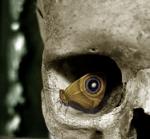 Terez, on 19 February 2010 - 07:05 PM, said:
Terez, on 19 February 2010 - 07:05 PM, said:
This is true for some, but you can't really say that this is true for all religious people. There are many sociological theories why there are people who become religious. While they all can be true, there aren't one single theory who applies for all people.
 stone monkey, on 19 February 2010 - 11:46 PM, said:
stone monkey, on 19 February 2010 - 11:46 PM, said:
Yeah i understand that it can be frustrating, its a claim about how the ontological truth looks like and that everyone else is wrong.
 stone monkey, on 19 February 2010 - 11:46 PM, said:
stone monkey, on 19 February 2010 - 11:46 PM, said:
The idea is that there cannot be enough good deeds to make you saved. Even though this is deeply integrated in what is judged in the end. There's the idea of a judgment based on deeds as well as faith.
I think in essence its about choosing God or Not. My point is that there is a clear path by which Jesus is the way, but there are also open how God understands people to be saved, we can't say how this salvation is to be measured in the heart of people. The point is this doubleness which i fear i don't are making myself understood on.
If there is a free choice between Good or evil, God or not God, then you are responsible for your actions, and there are consequences based on those actions. If i jump off a building and think i won't die, there still will be consequences despite any subjective opinion on my part.
This is still depending on if there is a heaven and a hell after the end of time. It's surely discussible. And its something i cannot expect everyone to believe in.
 stone monkey, on 19 February 2010 - 11:46 PM, said:
stone monkey, on 19 February 2010 - 11:46 PM, said:
You make an excellent point here, the reason cannot primarily be this, it would spoil the more honest way to live as you put it. There must be primarily out of love and goodness we should be good to those around us.
My question to you is this: Why is it better to be Good than not to be Good to people around us? What are your thoughts about this if you have more thoughts apart from your utilitarian view. (If that is your view).
As for heaven, i think there is a great argument not for how we live our lives but what happens after death. Is there more after death? There could be this positive place that is without evil or suffering. That leads me to the second argument, that the idea that evil and suffering will end. The evil and suffering of this world can be changed into hope for the future and an endurance in this life can spring out of it. There's a deeper meaning to the life on this earth that can blossom through it, a security. But not a reason to be good primarily.
Another question for you: Do you think there's something after you die? Or does life just end? Couldn't the fact that there isn't something after you die make everything hopeless and without meaning? What is my reason to do good if there isn't anything more after death, the absence could make us ultimately unresponsible of our actions.
 stone monkey, on 19 February 2010 - 11:46 PM, said:
stone monkey, on 19 February 2010 - 11:46 PM, said:
Surely this is different for different places in our world and the circles we move in. In Sweden there are many who doesn't know much about religion or Christian faith. There's a dogmatic opinion about Christians that they are secteristic and stupid in general, so people doesn't feel any need to think about Christianity or the big questions in life.
Still there are people who do know alot about religion. This isn't something you could generalize here in Sweden, but maybe where you are it is true in general.

 Help
Help




















